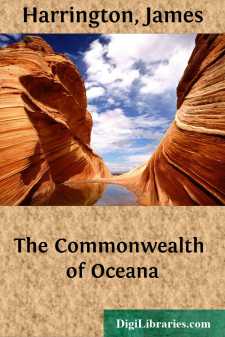Categories
- Antiques & Collectibles 13
- Architecture 36
- Art 48
- Bibles 22
- Biography & Autobiography 813
- Body, Mind & Spirit 142
- Business & Economics 28
- Children's Books 17
- Children's Fiction 14
- Computers 4
- Cooking 94
- Crafts & Hobbies 4
- Drama 346
- Education 46
- Family & Relationships 57
- Fiction 11829
- Games 19
- Gardening 17
- Health & Fitness 34
- History 1377
- House & Home 1
- Humor 147
- Juvenile Fiction 1873
- Juvenile Nonfiction 202
- Language Arts & Disciplines 88
- Law 16
- Literary Collections 686
- Literary Criticism 179
- Mathematics 13
- Medical 41
- Music 40
- Nature 179
- Non-Classifiable 1768
- Performing Arts 7
- Periodicals 1453
- Philosophy 64
- Photography 2
- Poetry 896
- Political Science 203
- Psychology 42
- Reference 154
- Religion 513
- Science 126
- Self-Help 84
- Social Science 81
- Sports & Recreation 34
- Study Aids 3
- Technology & Engineering 59
- Transportation 23
- Travel 463
- True Crime 29
Our website is made possible by displaying online advertisements to our visitors.
Please consider supporting us by disabling your ad blocker.
The Commonwealth of Oceana
by: James Harrington
Categories:
Description:
Excerpt
INTRODUCTION TO OCEANA
JAMES HARRINGTON, eldest son of Sir Sapcotes Harrington of Exton, in Rutlandshire, was born in the reign of James I, in January, 1661, five years before the death of Shakespeare. He was two or three years younger than John Milton. His great-grandfather was Sir James Harrington, who married Lucy, daughter of Sir William Sidney, lived with her to their golden wedding-day, and had eighteen children, through whom he counted himself, before his death, patriarch in a family that in his own time produced eight dukes, three marquises, seventy earls, twenty-seven viscounts, and thirty-six barons, sixteen of them all being Knights of the Garter. James Harrington's ideal of a commonwealth was the design, therefore, of a man in many ways connected with the chief nobility of England.
Sir Sapcotes Harrington married twice, and had by each of his wives two sons and two daughters. James Harrington was eldest son by the first marriage, which was to Jane, daughter of Sir William Samuel of Upton, in Northamptonshire. James Harrington's brother became a merchant; of his half-brothers, one went to sea, the other became a captain in the army.
As a child, James Harrington was studious, and so sedate that it was said playfully of him he rather kept his parents and teachers in awe than needed correction; but in after-life his quick wit made him full of playfulness in conversation. In 1629 he entered Trinity College, Oxford, as a gentleman commoner. There he had for tutor William Chillingworth, a Fellow of the college, who after conversion to the Church of Rome had reasoned his way back into Protestant opinions. Chillingworth became a famous champion of Protestantism in the question between the Churches, although many Protestants attacked him as unsound because he would not accept the Athanasian Creed and had some other reservations.
Harrington prepared himself for foreign travel by study of modern languages, but before he went abroad, and while he was still under age, his father died and he succeeded to his patrimony. The socage tenure of his estate gave him free choice of his own guardian, and he chose his mother's mother, Lady Samuel.
He then began the season of travel which usually followed studies at the university, a part of his training to which he had looked forward with especial interest. He went first to Holland, which had been in Queen Elizabeth's time the battle-ground of civil and religious liberty. Before he left England he used to say he knew of monarchy, anarchy, aristocracy, democracy, oligarchy, only as hard words to be looked for in a dictionary. But his interest in problems of government began to be awakened while he was among the Dutch. He served in the regiment of Lord Craven, and afterward in that of Sir Robert Stone; was much at The Hague; became familiar with the Court of the Prince of Orange, and with King James's daughter, the Queen of Bohemia, who, with her husband the Prince Elector, was then a fugitive to Holland. Lord Harrington, who had once acted as governor to the princess, and won her affection, was James Harrington's uncle, and she now cordially welcomed the young student of life for his uncle's sake, and for his own pleasantness of outward wit and inward gravity of thought....


